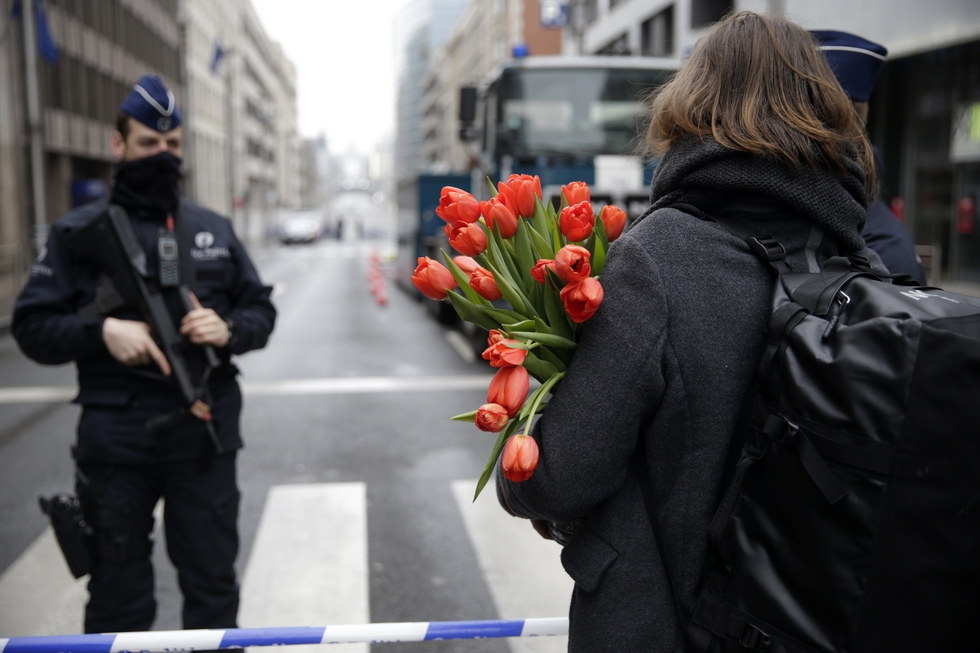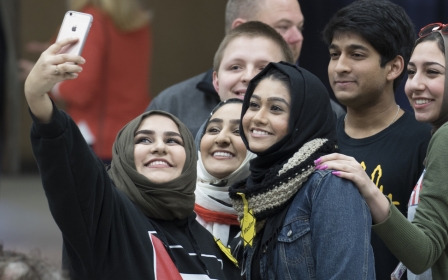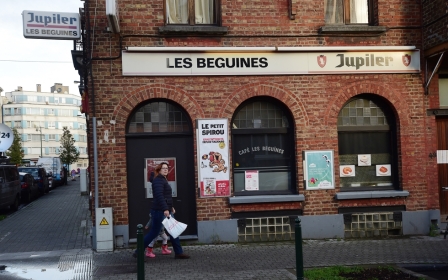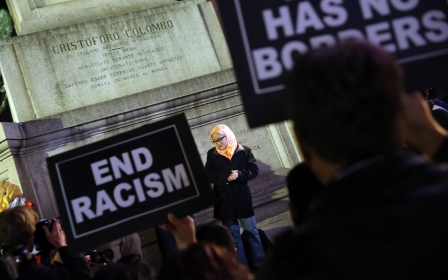Europe’s fertile ground for terror

A peaceful and prosperous modern Europe, which celebrates its diversity with a true telling of its history, simply does not exist. Instead, the Europe we see today is standing on the precipice of a very dark period, domesticating the attitudes and behaviours that have characterised it in the eyes of the rest of the world. As Europe has shifted to the right, it has awoken forces of opposition that are viscous and callous. The disfigurement from the nails that the survivors of the Brussels bomb will have to bear is a testament to that fact.
Sympathy and solidarity with victims is the necessary response. However, calling out the political powers that wear victimhood as a collective cloak to veil the causes of such violence is just as important for redress. A refusal to contextualise acts of terror, admonishing anyone who does as a sympathiser, invites absurdity. "They are attacking our love of flying," was genuinely proffered as a reason for the attacks on Sky News as what was happening in Brussels was breaking. The Bush administration's understanding of 9/11 replicated: "an attack upon freedom," not world trade, the military industrial complex and presidential power. Likewise with Brussels, the fact it is the centre of European power and the headquarters of NATO is all-important; it frames the conflict. European cities are being bombed because Europe bombed the world.
Since Vietnam, the forces of the West have operated in wars from afar, whenever possible. The forces of financial power are the first to be used, which has proven hugely effective in bringing down governments and getting favourable relations with political classes "ready to do business".
However, when a country's sovereignty refuses to budge or get in line, warfare is next. Huge aerial power, funding of opposition groups and huge arms exports follow. Western ground troops, when they are deployed, have clear mission objectives to destroy, capture and kill - withdrawal dates set (and usually ever-extended, hence the will to avoid them). The lion's share of the fighting is passed onto either private mercenary armies or local forces that Western powers arm.
The violence of these acts and the horrors that have come from them are incalculable. The political will for something reparative is understandable. In the wake of the Cold War and the victories of neo-liberalism, political radicalism has and continues to manifest in disturbing and problematic forms. The West, if it is to be honest, actively developed the forces it now cannot contain, which includes both the far-right fascists and the jihadists.
The methods used in the invasion of Iraq created the conditions for the forces that now terrorise Europe. Daesh's ideology is now spreading beyond the borders of the Middle East, laying roots in the fertile grounds of post-conflict societies and attacking states that oppose them. It thrives in the conditions created by neo-colonialism and modern imperialism, as al-Shabaab and Boko Haram attest to. Contrary to popular belief, the number of Muslims being killed by such forces vastly outnumbers any other group. The populations most hurt by terror - and the war upon it - are Muslim.
The hyper-religiosity of Daesh and their ilk breeds in particular social conditions and contexts. The zealotry, so characteristic of the jihadists who fill the group's ranks, often compensate for their past lives. Within Iraq, many are reportedly former Baathists; in the West many have lived lives of indulgence and "decadence," they therefore feel they have to prove their faith by practicing the most literal form they know and renouncing those who have different understandings. The idea of parallel societies existing in European cities, where children are inculcated within a "death cult" is a fiction. A society that creates mass murderers is all too real.
Molenbeek has been depicted as subterranean by much of the media, an area so layered by its separate communities that the Western eye or lens couldn't capture it. It hasn't been reported that such a world doesn't exist. Take the example of "Les Beguines café," the business ran by Ibrahim Abdeslam, the brother of the "goldmine" Salah, who was arrested on the Friday preceding the attacks for purportedly masterminding the Bataclan attacks.
Ibrahim killed himself in a suicide attack in Paris on 13 November, prior to this, the cafe he ran until August 2015 would sell alcohol, play music and be a place of habitual hashish smoking. Authorities shut it down because of the contraband the space was known for. When people talk of the jihadists that exist in Molenbeek, they neglect to mention just how "integrated" these dangerous cells were.
It isn't hardcore Salafism or Wahabism that is the motivating force, it seldom is. The most religious members of the Muslim community are not the threat. The prioritisation of the spiritual and the belief in the hereafter limits engagement due to the perceived risks that come from following political passions.
The attackers in Brussels are likely to mirror the experiences of those behind the London and Paris attacks, who taught in schools, ran fitness classes, smoked weed, drank alcohol and had sex before marriage. What made them into the monsters was the monstrosity of the world around them.
Molenbeek, per capita, is the area that most Europeans who have gone to fight in Syria have come from. Similarities, I am sure, could be drawn to the development of "Jihadi John" and his friends who met and formed cells who went to fight in Syria from Ladbroke Grove. Lived experience and media reports often come into tension. Few would associate Ladbroke Grove with militant jihadism. But it is an incredibly political environment, as - I imagine - is Molenbeek.
For a politicised young person coming of age, wishing to purify and cement an identity, it's easy to overcommit to causes that seem just. Caught in the whirlwind, one can find oneself out in the sea and without a safe place. I went through periods of political lunacy, as have most political people around me. Those caught on particularly problematic storms can end up in the direst of situations and can commit heinous acts that do nothing for their cause or the good of their community.
An adequate response to the issues of terror would map the process of radicalisation. Any meaningful analysis would place it in the context of foreign and domestic policy. War abroad, matched with draconian measures at home, fuels a fire that already is burning in most who are alienated in the metropolises of the Western world. Zealotry, over commitment and violence easily follow.
In the wake of another attack on European soil, let us take the steps towards redress. Let us fight against the legacies of colonialism, empire and continued imperialism. Let us teach history from a global perspective. Let us leave no one behind. Let us mourn the death of Iraqis, Yemenis, Somalis and Nigerians the way we mourn Belgians. When we have done this, home-grown terror will be a very hard thing to grow in the solid grounds of community. Or we can leave the ground fertile and chuck some more manure down.
- Daniel Renwick is a journalist and youth worker. He was based in Germany for three years before returning to London.
The views expressed in this article belong to the author and do not necessarily reflect the editorial policy of Middle East Eye.
Photo: A woman arrives with flowers at a cordoned-off area near Maelbeek - Maalbeek subway station in Brussels on 23 March, 2016, a day after triple bomb attacks in the Belgian capital killed about 35 people and left more than 200 people wounded (AFP).
New MEE newsletter: Jerusalem Dispatch
Sign up to get the latest insights and analysis on Israel-Palestine, alongside Turkey Unpacked and other MEE newsletters
Middle East Eye delivers independent and unrivalled coverage and analysis of the Middle East, North Africa and beyond. To learn more about republishing this content and the associated fees, please fill out this form. More about MEE can be found here.





